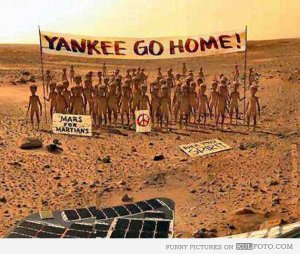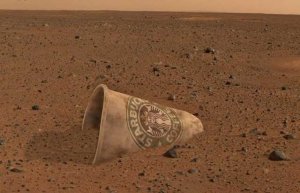In an email to the Los Angeles Times, Chris McKay, a scientist at
NASA Ames Research Center, said this part of Benner's
hypothesis is not as simple as Benner suggests.
While McKay agrees that molybdenum needs oxygen, and that most of the early Earth did not have oxygen, he believes there were areas of the Earth that did have some oxygen.
"Many years ago I wrote a paper in which we stated: 'The abiotic production of atmospheric oxidants could have provided a mechanism by which locally oxidizing conditions were sustained within spatially confined habitats,'" he wrote. "So molybdenum may have been available on the early Earth just locally not globally," he wrote.
A Mars start for life might also solve the water paradox, he said, because back when life was first forming, Mars had areas of dry land and areas covered by water. Indeed,
NASA's Curiosity rover has found evidence of water on Mars and evidence that the planet was once hospitable for life.
So, did Benner's talk provide conclusive evidence that life started on Mars? No. But he did provide evidence to support his
theory.
He also adds that although he thinks life could have started on Mars, he's glad it is now thriving on Earth.
"It's lucky that we ended up here, as certainly Earth has been the better of the two planets for sustaining life," he said in a statement. "If our
hypothetical Martian ancestors had remained on Mars, there might not have been a story to tell."






